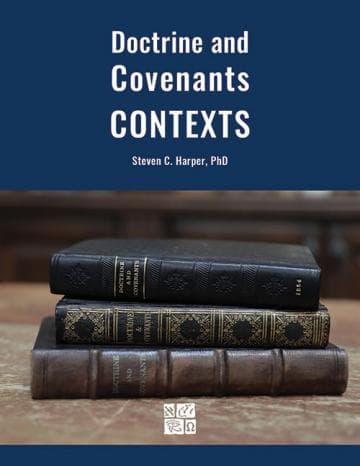Book
136 Chapters

“The greatest desire of my heart,” wrote Orson Pratt of his youth, “was for the Lord to manifest his will concerning me.” In the fall of 1829, eighteen-year-old Orson “began to pray very fervently, repenting of every sin.” Soon two elders, including his older brother Parley, came to his upstate New York neighborhood with the restored gospel and baptized Orson on his nineteenth birthday. “I traveled westward over two hundred miles to see Joseph Smith, the Prophet,” Orson recounted. He found Joseph in Fayette at the Whitmer home, where he asked Joseph for a revelation.[1]
“I well recollect the feelings of my heart at the time,” Orson said many years later. Joseph “retired into the chamber of old Father Whitmer, in the house where this Church was organized in 1830.” Joseph asked Orson and John Whitmer to join him upstairs, where he got his seer stone, put it into a hat, and asked Orson to write what he would say. Orson felt inexperienced and unworthy and asked if John could write, and the prophet said he could.[2]
Orson remembered how
the Lord in that revelation, which is published here in the Book of Doctrine and Covenants, made a promise which to me, when I was in my youth, seemed to be almost too great for a person of as humble origin as myself ever to attain to. After telling in the revelation that the great day of the Lord was at hand, and calling upon me to lift up my voice among the people, to call upon them to repent and prepare the way of the Lord, and that the time was near when the heavens should be shaken, when the earth should tremble, when the stars should refuse their shining, and when great destructions awaited the wicked, the Lord said to your humble servant—“Lift up your voice and prophesy, and it shall be given by the power of the Holy Ghost.” This was a particular point in the revelation that seemed to me too great for me ever to attain to, and yet there was a positive command that I should do it.[3]
The Lord chose Orson as an apostle in 1835 at age twenty-three. As commanded in his youth in Section 34, he lifted up his voice long and loud and cried repentance to a crooked generation until he died an old man in 1881. Brigham Young said of Orson, “If you were to chop up Elder Pratt into inch-square pieces, each piece would cry out, ‘Mormonism is true.’”[4]
[1] Elden J. Watson, compiler, The Orson Pratt Journals (Salt Lake City, by the compiler, 1975), 9.
[2] James R.B. Van Cleave, Richmond, Missouri, to Joseph Smith III, Plano, IL, September 29, 1878. Community of Christ Library and Archives. “History of Orson Pratt,” 10, Historian’s Office, Histories of the Twelve, ca. 1858–1880, Church History Library, Salt Lake City, Utah.
[3] Journal of Discourses, 26 vols. (London and Liverpool: LDS Booksellers Depot, 1855–86), 17:290.
[4] Quoted in Breck England, The Life and Thought of Orson Pratt (Salt Lake City: University of Utah Press, 1985), xi.
Book
136 Chapters
Items in the BMC Archive are made publicly available for non-commercial, private use. Inclusion within the BMC Archive does not imply endorsement. Items do not represent the official views of The Church of Jesus Christ of Latter-day Saints or of Book of Mormon Central.